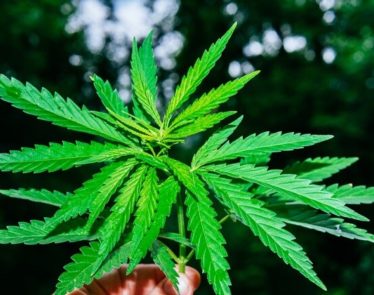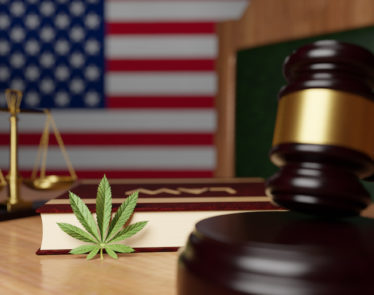
Canada’s long-awaited second wave of marijuana legalization is rolling out on Thursday in what is being dubbed Cannabis 2.0, officially legalizing the sale of cannabis edibles, cannabis-infused beverages, extracts, and other derivatives.
But what does Cannabis 2.0 mean for investors?
To understand the massive potential of this new market, savvy investors should look at what happened in Canada during its first year of legalization, what analysts are predicting for Cannabis 2.0, and which companies are poised to reap the benefits.
A Look Back at Canada’s First Year of Legalization
Just under a year ago, Canada became the first developed nation to legalize recreational adult-use cannabis. This market emerged as a growth driver, contributing over $8 billion to Canada’s gross domestic product (GDP) and adding 9,200 jobs. Although the rollout was slower than expected, Canada’s legal marijuana industry grew an impressive 185% in its first 10 months. At the same time, the black market’s output went down by 21%.
On top of that, cannabis legalization opened the door for research funds to fine-tune how cannabinoids can be used to treat a number of diseases.
Unfortunately, the legal cannabis industry also had its share of shortfalls in the last year, including the painfully slow rollout of legal cannabis dispensaries, supply shortages, and a broad decline in pot stocks. Legal cannabis sales also missed the mark, bringing in only $524 million in the first seven months of this year.
The lack of retail locations has been a major factor in lackluster sales numbers, with provincial licensing requirements getting in the way of more stores opening. British Columbia, in particular, has had a rough go in the retail space due to the province’s eight-store limit. Luckily, Canada’s legal cannabis store count is expected to grow quickly in the coming months, with Ontario expected to open 50 new stores later this year.
Of course, considering that Canada rolled out a national legalization plan from scratch, many believe that the country fared pretty well overall. The fact is, licensing and product quality issues are typical growing pains that are expected.
At the very least, the setbacks faced by the Canadian cannabis industry in the last year have taught cannabis companies a thing or two about working through barriers, and despite the initial lag, things are starting to look up for Canada’s legal cannabis market.
>> ACHN Stock Soars 70% Following Acquisition By Alexion Pharmaceuticals
Cannabis 2.0 at a Glance
The much-anticipated Cannabis 2.0 has generated a lot of hype from investors and companies alike, with businesses from nearly every sector looking to gain a stake in what is expected to be a very lucrative market.
In fact, according to Deloitte, the Canadian cannabis derivatives market could generate an impressive $2.7 billion CAD annually, with edibles accounting for $1.6 billion CAD alone.
Of course, much like the first wave of legalization, Cannabis 2.0 will likely come with its own set of growing pains. Again, this is expected in a newly formed industry that is learning how to navigate a new set of rules and regulations.
It’s also important to understand that just because cannabis derivatives will become legal this Thursday, this doesn’t mean consumers will be able to get their hands on products immediately. The fact is, cannabis companies are required to file a notice to Health Canada 60 days before they can market new cannabis products, meaning the first marijuana derivatives won’t be available for sale until sometime in December.
What’s more, Health Canada put together a new set of strict guidelines specifically for cannabis edibles and derivatives that may create additional barriers for cannabis companies looking to launch edibles to the market this year.
Add the vaping controversy into the mix, and it becomes clear that, despite its potential, the Cannabis 2.0 market could be slow-moving indeed.
Companies with a Head Start on Cannabis 2.0
Several pot stocks began preparing for Cannabis 2.0 months ago to get a head start on the competition.
Canadian cannabis industry giant Aurora Cannabis (TSX:ACB) (NYSE:ACB) has already received a Health Canada license for its edibles production facilities; however, its products and packaging will still need to pass approvals.
Meanwhile, Organigram Holdings (TSX:OGI) (NASDAQ:OGI) has already made a $15 million investment into chocolate cannabis edibles and a high-speed, high-capacity, fully-automated edibles production line that will have the ability to produce an estimated four million kilograms of chocolate cannabis edibles annually.
Then there is HEXO Corp. (TSX:HEXO) (NYSE:HEXO), which entered the cannabis beverages space over a year ago through a partnership with Molson Coors Brewing Co. (NYSE:TAP).
And those are just a few of the cannabis companies looking to infiltrate the Cannabis 2.0 market.
It wouldn’t be surprising to see some of your favorite pot stocks make a move into the edibles market in the coming weeks or months. Investors interested in the edibles and derivates space will definitely want to pay close attention to which companies are following the rules closely.
Are you excited about Cannabis 2.0? Which stocks are on your radar? Let us know in the comments!
Featured Image: Depositphotos ©Evgeniy_Bobkov












